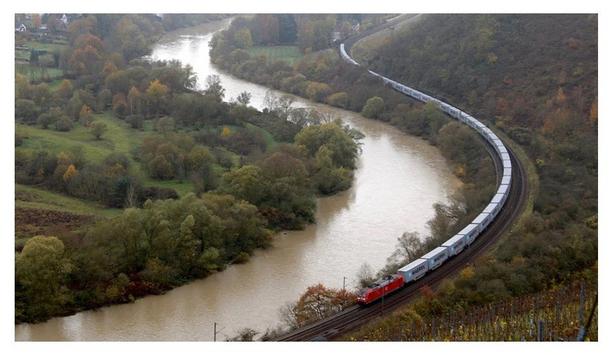In the second interview with Lloyd’s List published April 14th, 2020, Wrsit Group CEO Jens Holger Nielsen elaborates on keeping international trade moving to ensure deliveries to workers at sea – Seafarers' suppers fed by triple barrel supply pipeline.
Local, regional, and global sourcing is needed to ensure food reaches those working at sea, and who are on the front line of helping to keep supermarket shelves stocked.
Food supply challenge
Jens Holger Nielsen is adamant that his company’s worldwide network is essential to keep trade moving
With tens of thousands of seafarers trapped on ships, and many more on offshore installations, the challenge of supplying food and other essentials requires meticulous preparation, says Wrist chief Jens Holger Nielsen.
At a time when globalisation is falling out of favour, Jens Holger Nielsen is adamant that his company’s worldwide network is essential to keep international trade moving by ensuring those working at sea receive the provisions they need.
Meticulous preparation
With tens of thousands of seafarers trapped on ships, and many more on offshore installations, because of widespread restrictions on crew and personnel changes, the challenge of supplying food and other essentials requires meticulous preparation and numerous backup plans, says Mr. Nielsen, group chief executive of the ships services company Wrist.
That in turn is dependent on what Mr. Nielsen calls “a triple barrel supply pipeline,” with sites able to source supplies locally, regionally, or globally.
Strong global supply line
Most businesses that provide stores for ships or offshore platforms are either local or at best regional organisations, but with the spread of the coronavirus starting to disrupt distribution systems, the ability to tap into a strong global supply line is necessary in these unprecedented times, according to Mr. Nielsen.
“Now is the time to prove we are there for the people at sea…. to deliver what they need to keep going,” he says. “They are completely dependent on us.”
Privileged supplier relationships
Wrist is already seeing the business grow as the pandemic underlines the need to be well-resourced
As the undisputed pioneer in this sector with an estimated market share of 10%-12%, and with strong owners in contrast to some of the smaller players, Wrist is already seeing the business grow as the pandemic underlines the need to be well-resourced. Privileged supplier relationships are another advantage.
“We already today have several large customers working with us under more framework type of agreements, which is much more efficient for both parties and which secures supply planning better. We have seen this accelerating under the current circumstances,” says Mr. Nielsen.
Robust supply chain
The Denmark-based company, which is owned by the Scandinavian private equity fund manager Altor, has 26 sites around the world from which it can provide supplies, located in North America, Europe, the Middle East, and Asia.
“As the only company in our industry, we have a completely global footprint as well as a robust supply chain and were very early out of the starting blocks to protect our organisation and business continuity, and so far so good, we believe we have all the measures in place to continue supplying vessels globally under increasingly challenging circumstances,” says Mr. Nielsen.
Addressing bottlenecks
Wrist started to build up stocks before the disease worsened into a pandemic and also updates daily a heat map of Wrist’s global supply capability to immediately detect any potential issues. Staff can see in real-time where there may be bottlenecks or shortages.
That way, if stores are running low in one location, alternative arrangements can be made to provide the vessel at its next port of call although this has not yet been necessary.
Food inflation
While balancing sustainability considerations, airfreight will be used when necessary
Food is sourced from all over the world, with Wrist buying some 3,000 containers of food and other supplies a year that can be distributed between its 26 sites. While balancing sustainability considerations, airfreight will be used when necessary but predominantly for urgent vessel spare parts.
In these difficult times, there may be occasions when the exact product ordered is in short supply, but customers have been very understanding, according to Mr. Nielsen, and no crews have gone without provisions. “We see bumps and strained supply chains here and there but nothing we have not been able to handle,” Mr. Nielsen notes. “We do, however, see food inflation.”
Customer requirements
The former chief executive of Samskip, and managing director of Maersk Line UK, believe his background is proving particularly useful, giving him a good appreciation of customer requirements in these difficult times.
As the coronavirus spreads, there have been reports of officials in some ports trying to block deliveries of certain supplies to ships, thinking it is bound for export markets. “But they soon understand, once we explain that the provisions and supplies are for the seafarers on board, and if that is not allowed, then global supply chains stop,” says Mr. Nielsen.
Vessel budget management
Wrist makes around 80,000 deliveries a year to some 13,000 vessels of all types, from tankers, bulkers, containerships, ferries, and cruise ships to offshore vessels and platforms all through its three main divisions Wrist Ship Supply, Garrets for vessel budget management, and Strachans for offshore work. The challenge is to second guess where shortages may occur in the food supply chain, as agricultural work is disrupted by the coronavirus, and make sure there are alternative supplies.
”That is where our global footprint is an enormous benefit and we spend a lot of time solidifying our supply chain from all angles,” says Mr. Nielsen. "Because if we cannot get food to the crew on board ships, then it is game over or at least a very different ball game.”











